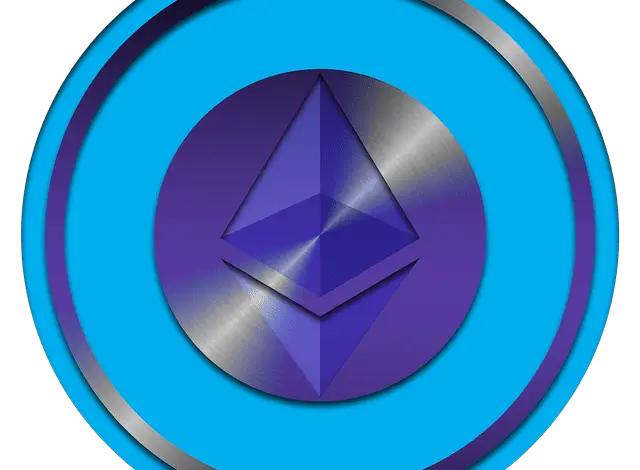Ethereum Token Standards Explained: Why Are They Paramount for Blockchain Technology?

Ethereum, the second-leading cryptocurrency in circulation, has gained popularity in the past years due to its constant upgrade to the network.
The smart-contract-based blockchain is known as a leading competitor on the market, too, especially compared to the XWP price. But if you want to buy Ethereum, you’ve got many options because the community is constantly working towards easier access to the cryptocurrency and blockchain as well.
But blockchain technology needs to maintain a particular set of rules and conditions for the system to work properly so that crypto tokens are functional. Token standards are the tools that help blockchain mechanisms ensure flow during transactions, exchanges and other actions. Let’s see why these rules are important and their impact on the crypto industry.
Understanding the technology behind token standards
Before getting into complex details about token technology, we must understand the methods powering them up and smart contract standards. These are a set of rules that smart contracts are required to comply with inside the blockchain network. Smart contract standards leverage specifications like token standards and name registries. With the help of these tools, users can create an ERC token that stands for “Ethereum request for comment” and is used for issuing smart contracts on the blockchain. Overall, token standards guide the creation, issuance and deployment of coins.
Since most smart contracts use the Ethereum blockchain, some common token standards are known as vital in this sector.
Types of Token Standards on Ethereum
The first and most popular token standard is the ERC one, which generally includes guidelines for the steps to develop a smart contract. Besides facilitating the interaction between applications and smart contracts, ERC tokens define specific functions for each token. The process of creating an ERC token isn’t that complex, but it requires certain background knowledge of the Ethereum Improvement Proposal (EIP). This document contains features and processes for the Ethereum blockchain network.
The ERC-20 Token Standard
If the ERC standard is the set of rules made for the deployment of smart contracts, the ERC-20 is the guideline for creating fungible tokens on Ethereum. A fungible token can be the equivalent of another, which is also the case for fiat currency.
Tech companies usually develop ERC-20 tokens as they allow for utility customization, like granting vote rights or rewarding mechanisms. This token standard is required to implement the following functions:
- Deriving the total token supply out of a specific ERC-20 token;
- Deriving the token balance to a digital wallet;
- Transferring the ownership from one token to another;
- Limiting the number of tokens withdrawn from a smart contract;
- Getting external access to spend tokens from a wallet balance;
Other optional functions include the token’s name, the ticker symbol or the divisibility of how many decimals the token can support. After all the operations below are addressed, the ERC-20 contract is formed and is able to become the base of cryptocurrencies, whether stablecoins or security to utility tokens.
The ERC-721 Token Standard
The ERC-721 Token standard is used for the creation of non-fungible tokens (NFTs) that can’t be exchanged for another because every NFT has unique applications. These tokens represent digital collectibles, game items, digital art and even ownership of physical assets.
A famous project built on this standard method is CryptoKitties, which is an Ethereum-based game where players can buy, sell and breed cute digital cats. Many other similar NFT projects have been sold on the markets with considerable amounts of money, which proves their value.
The ERC-777 Token Standard
ERC-777 was created to supply the limitations and challenges of ERC-20. Therefore, it helps address efficiency for smart contracts to send and receive contracts. This function also ensures the rejection of transactions from delisted addresses to protect the network’s security.
The ERC-1155 Token Standard
The final most essential token standard has the job of creating gas-efficient token contracts and making them fungibility-independent. Therefore, one ERC-1155-based smart contract can manage an infinite number of tokens.
Why are smart contracts that important?
In simple words, smart contracts are technologies that help businesses and regular users by saving costs as it eliminates intermediaries. That’s because smart contracts can execute themselves automatically and autonomously as they’re written in a decentralized and immutable programming language. Smart contracts follow simple statements written in code on the Ethereum blockchain. When predefined conditions are met and verified, whether they’re about releasing funds or issuing a fine, the transaction is completed and no longer possible to change.
Smart contracts are highly beneficial for all kinds of networks because:
- They simplify business without the need for intermediaries;
- They help reduce the formality and costs of transactions;
- They ensure credibility, security and authenticity;
- They are executed in real-time and occur simultaneously for all parties;
- They leverage a trustworthy business environment;
Real-life examples of smart contracts
Smart contracts are not only advantageous for blockchain technologies but have already been introduced as a real-world application for companies to improve security and business activities. Here are the sectors that use smart contracts the most:
- Clinical trials can share data more safely and efficiently across sectors and also ensure its accuracy;
- The music industry can leverage royalty payments and make them easier and safer for audiences;
- The supply chain management can better provide an end-to-end supply chain through scheduling escalation measures;
- Property ownership can offer fractional ownership of real estate by allowing people to win certain tokens;
- Mortgages can be improved by using proof-of-funds and payment planning without the need for lawyers and third parties;
- Digital identity measures can be developed for users to control their digital identity data and verify it without the involvement of other companies;
- The insurance sector can now automate policies and services with automated payments to lower premiums;
Bottom line
Ethereum is one of the most well-developed cryptocurrencies. At the same time, its blockchain technology leverages important functions through which many businesses and sectors can improve their processes. And as token standards become more advanced, the ecosystem will help build a safe and efficient network for all users and companies.





